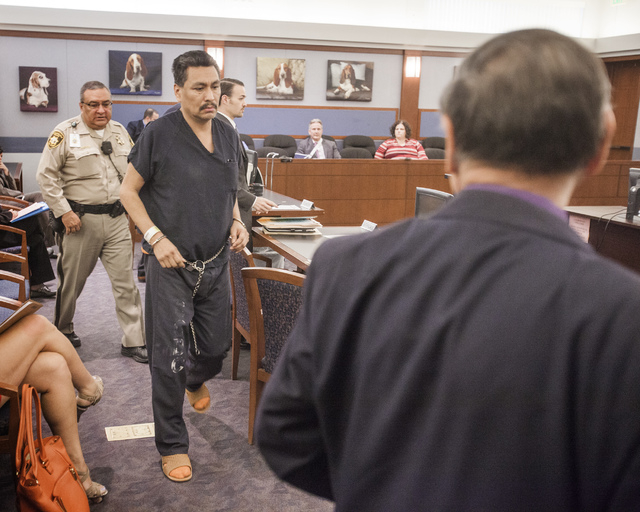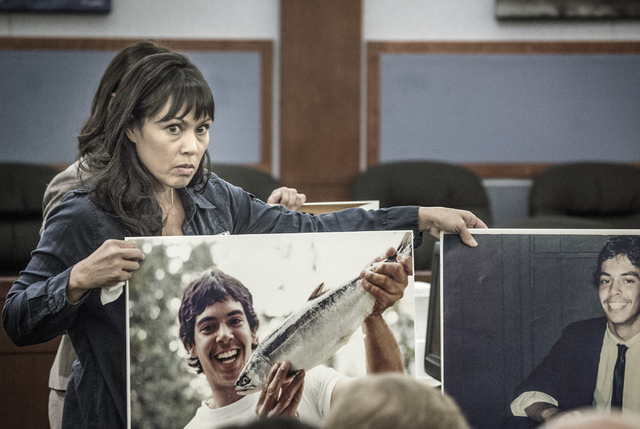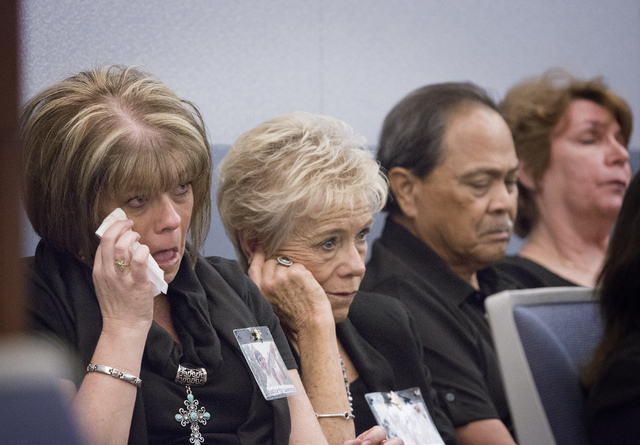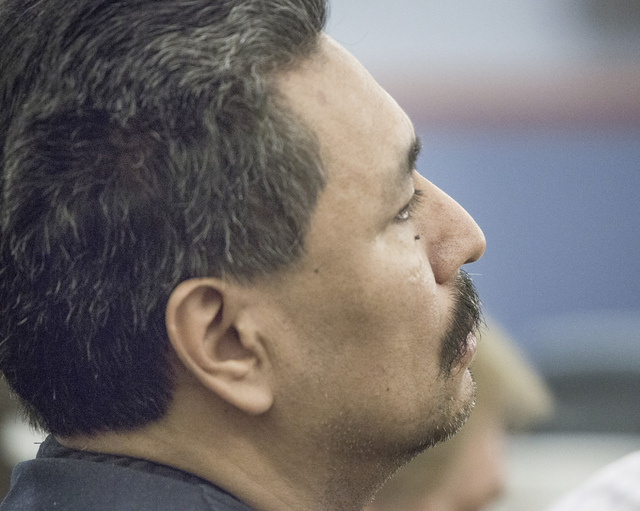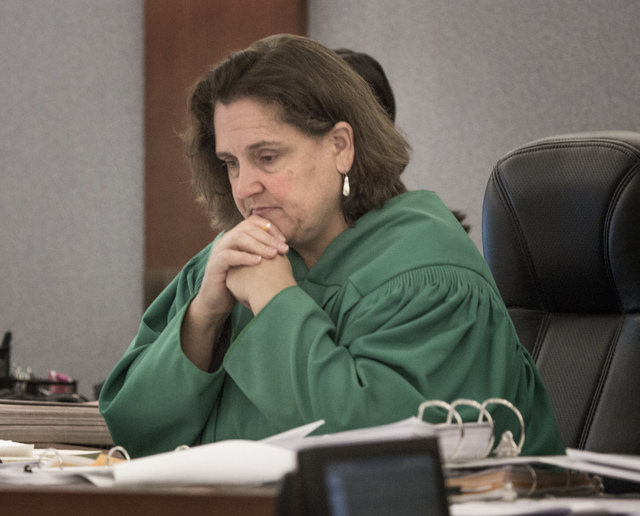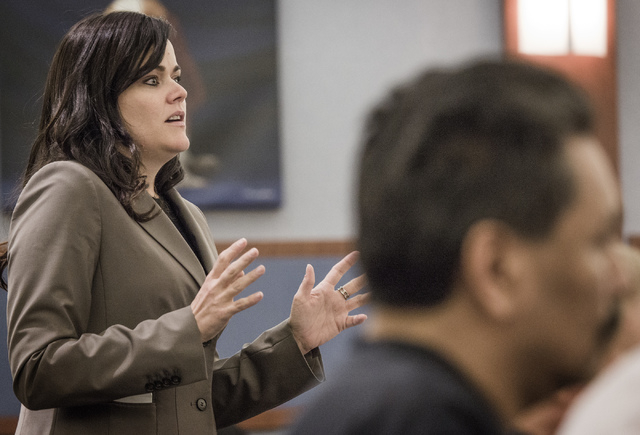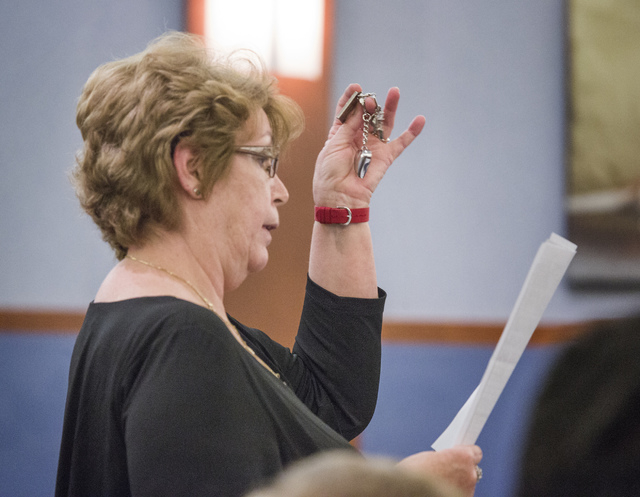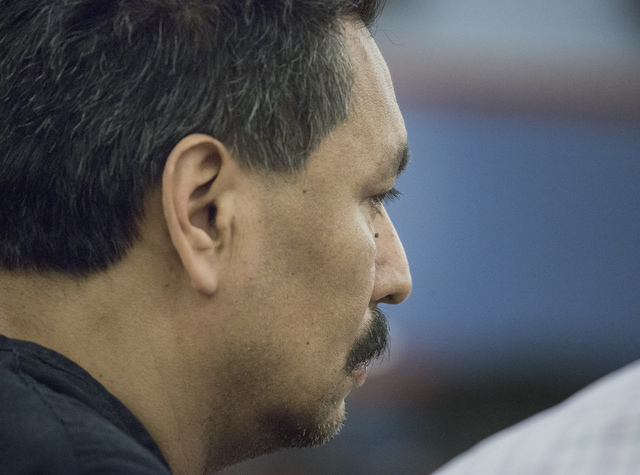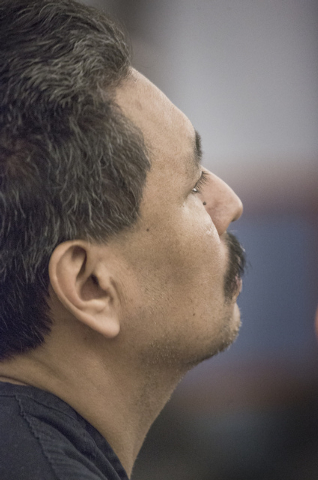Texas fugitive prison-bound more than 20 years after missing Las Vegas sentencing
Lawrence Compehos Jr. came to the Clark County Courthouse 21 years ago to speak at the sentencing of two men who turned him into a quadriplegic.
His speech — written on a large note card in his sister’s handwriting — expressed his wish for the impossible: a life sentence for the two brothers who mercilessly beat him on July 6, 1992.
“I realize the maximum is only five years,” Compehos wanted to tell then-District Judge Gerard Bongiovanni. “I beg this court to give them that and not just a slap on the wrist.”
He also wanted to tell the judge how these men, who attacked him when he was working as a waiter, had robbed him of a “normal life” and forced him to go through the humiliation of having a nurse take care of nearly all his needs.
But Compehos never got the chance.
The brothers failed to show up for their sentencing, and Compehos died on Dec. 21, 2008. He was 39.
On Wednesday, after more than two decades on the lam, the older brother finally faced his day of reckoning.
In a new courthouse with a new judge, Sergio Garcia Carrizales received the maximum penalty of five years in prison for his role in the crime.
“There’s nothing that can change history with regard to this matter,” District Judge Kathleen Delaney said before imposing the sentence.
Carrizales, now 50, was recently arrested on a bench warrant in Texas and extradited to Las Vegas. The victim’s mother, Peggy, had found an address for him while searching the Internet and alerted authorities.
“It’s shameful that this family had to wait 20 years for justice in this case,” Chief Deputy District Attorney Shanon Clowers told the judge on Wednesday.
The prosecutor said Carrizales escaped a murder charge, even though the victim’s death was ruled a homicide. Nevada law at the time of the beating blocked murder prosecutions for cases in which the victim died more than a year after an attack.
Compehos was 23 when he was beaten at Anthony’s Club &Casino, then located at 377 E. Flamingo Road.
He noticed two male patrons hassling a female employee and intervened, but he said that made the men angry.
Compehos told police he tried to avoid a fight, but the pair jumped him anyway.
After the beating, officers arrested Rosendo Carrizales Garcia, 22, and his 29-year-old brother, Sergio. Police described the men as registered aliens from Monterrey, Mexico.
The brothers struck a deal with prosecutors to reduce a charge of battery with substantial bodily harm to attempted battery in exchange for guilty pleas.
That meant the maximum possible sentence for each man dropped from 10 to five years. But rather than face their punishments, they fled.
Garcia was arrested again in November 1995. He was sentenced in February 1996 to five years in prison and was paroled in April 1998 — all without the victim’s knowledge or input.
Shortly after Garcia’s release from prison, he was deported to Mexico, but his brother’s whereabouts were still unknown.
In court on Wednesday, Carrizales said he has been working in Texas.
Wearing a navy blue inmate uniform, his dark hair tinged with gray, Carrizales also spoke about the incident that led to his arrest.
Through a Spanish intepreter, he said he was coming out of a restroom when he saw his brother fighting with another man, who seemed to have the advantage. He acknowledged hitting the other man “once in the face.”
Compehos told police both men kicked him when he was on the ground, after he could no longer lift his arms to defend himself.
Defense attorney William Skupa argued that Carrizales “was much less involved than his brother.”
“He has been trouble-free for all these many years,” the lawyer said.
Skupa said serious injuries can occur “any time a punch is thrown.”
“This is the danger of any fight — that it can have tragic consequences,” he said.
Carrizales’ wife, mother and sister attended the sentencing hearing.
Compehos’ mother and sister gave victim-impact statements at the hearing, while his father and other supporters listened in the gallery.
Each of them wore a badge with a photo of Compehos, taken before he was paralyzed, and the message “Justice for Lawrence.”
Peggy Compehos said her only son was born and raised in Hawaii, but he refused to return to his native state until he could run on the beach and swim in the ocean again.
“Lawrence still held on to the hope for a miraculous recovery,” she said.
Peggy Compehos said she thinks about her son every day and carries his ashes in a small heart in her purse. Every year, friends and family gather to commemorate his birthday and the anniversary of his death.
“Lawrence lived with many hardships, but he still managed to make a difference in all of our lives,” his mother said.
Compehos’ sister, Sonya Henney, fought back tears as she talked about the relationship she and her brother shared.
“Lawrence and I were always close,” she said. “While growing up, I always felt safe, even if he wasn’t around. He was the strong one. He was my protector.”
Henney recalled how scared her brother looked when she first saw him in the hospital after the beating. She said she and her mother soon became his caretakers, his protectors.
“I still feel my brother’s spirit around me every day,” Henney said. “He is my protector again.”
Contact reporter Carri Geer Thevenot at cgeer@reviewjournal.com or 702-384-8710. Follow @CarriGeer on Twitter.



